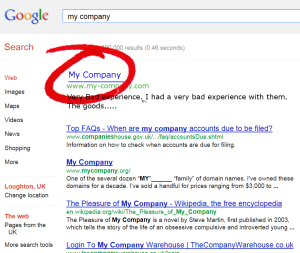Blogging is a simple way of publishing articles on the internet but it is also a simple way of keeping the conversation about your brand in a positive light.
Fresh articles tend to appear very high on search engines very quickly. This means that provided you can write about your experiences in dealing with your customers, you can bring your business very high visibility on the internet without having to spend a fortune on Search Engine Optimisation and without the on-going expenses that this involves.
This also means that your positive articles are pushing any negative content further away from being noticed. Most people don't look past the first page of Google, so if you are consistent with your bright and informative blogs, then this is all people will see when they come online.
Keeping a good reputation by being committed to blogging educational and interesting articles is a great reputation defender.
You can start a blog for free by signing up to wordpress.com. There are other free blogs that you could use but word press is the most SEO friendly blogging tool that you can currently find. Blogging works wonders with search engines such as Google.
Once you have signed up with wordpress and started a blog, follow the simple steps below and you will very quickly be able to make your articles visible to your prospective customers on the internet.
It is best that you write an article which is based on a specific question that your customers are likely to ask you. Your blog post in effect will give the answers to these questions. By doing this repeatedly you will start positioning yourself as an expert in your particular field.
You will prove your knowledge, experience and personality through the articles that you write. If your article is focused on one specific question that your customers ask you then there is a good chance that when they search the internet for this question, your article will appear on the top of the search results. The more questions you are able to answer through different blog posts, the more of an expert you will be seen by those who seek answers to the related questions.
If you give out good, valuable information which is based on your experience and your experience with customers, those that visit your blog will assume that your knowledge is far greater than the information you have just given away.
Once you have written an article you can post it on your blog in a way that will enhance the blog post’s visibility. Consistent blogging about subjects that you know about gives your company massive value, in terms of marketing but also, keeping the conversation about you and your business, a good one.
Being committed to blogging regularly, will certainly drown out any bad negative reviews or any social media defamation.
To learn about easy ways to enhance the visibility of your blog posts, read the following article on social media solicitor.
- Details
- 3688




